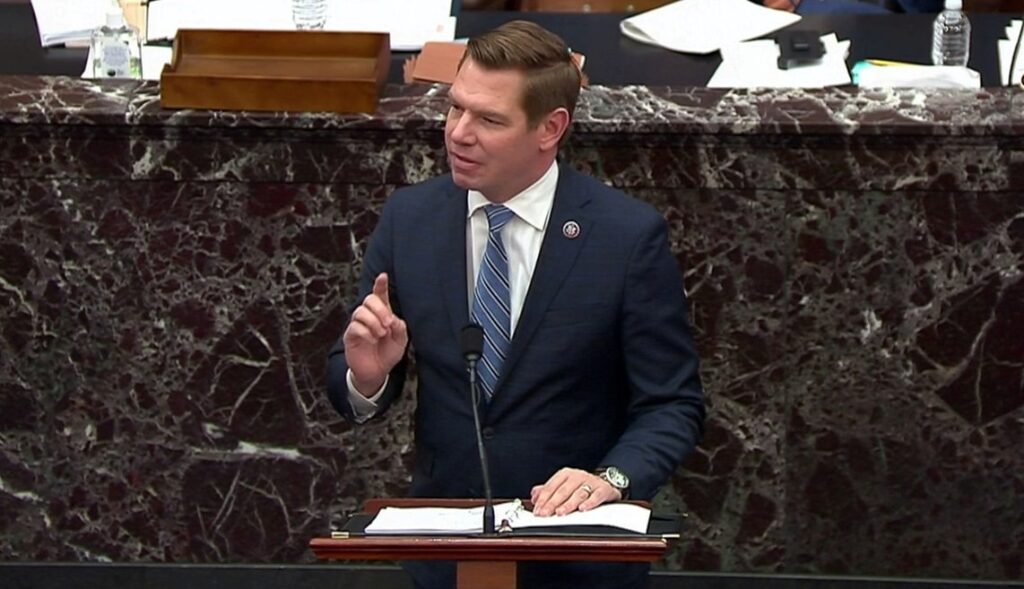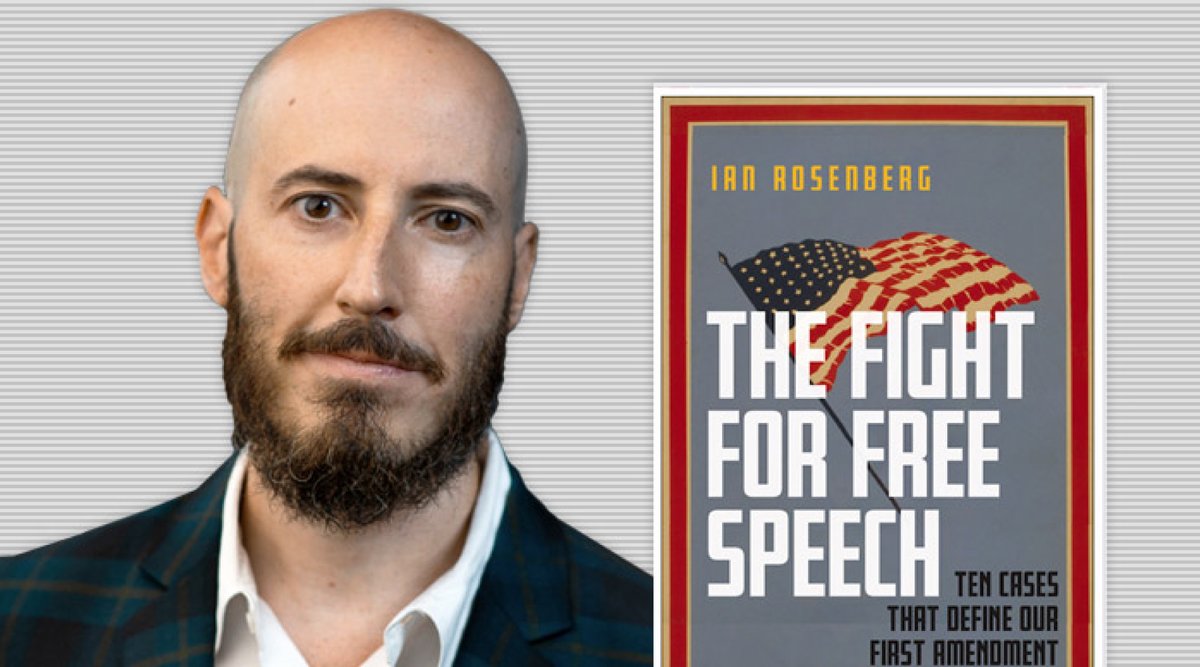On March 5th, a House Democrat from California filed a civil lawsuit against former President Donald Trump accusing him of inciting the January 6th attack on the United States Capitol.
Filed by Representative Eric Swalwell (D-CA) in the United States District Court for the District of Columbia, the lawsuit argues that the Capitol insurrection was a “direct and foreseeable consequence” of Trump and his allies’ repeated false claims that the Democrats rigged the 2020 presidential election.
See also: Does the First Amendment Protect Trump on Incitement to Riot?
Much like the case that was laid out during Trump’s second impeachment trial, Swalwell’s lawsuit also asks the judge to consider Trump’s behavior in the months leading up to the Capitol attack. He argues that Trump’s speech on the day of the attack, in which he urged supporters to march to the Capitol, should be interpreted as a last-ditch effort to undo the election results.
“Donald Trump lost the 2020 presidential election; he was unwilling to accept defeat. Trump lied to his followers, telling them that the certification of Joe Biden’s election was a ‘coup’ and that their country was being stolen from them. The Defendants filed frivolous lawsuits, all of which failed. The Defendants tried to intimidate state officials, none of whom caved to the pressure. Out of options and out of time, the Defendants called their supporters to Washington, D.C. on the day Congress met to certify Joe Biden’s win, telling them to ‘Stop the Steal and ‘be wild.’ Thousands came to the District in response. Some planned violence at the Capitol in advance; some were stirred to violence by the Defendants’ words on that day.”
The suit also lists Donald Trump Jr., Rudy Giuliani, and Representative Mo Brooks (R-AL) as defendants. All three delivered fiery speeches during the January 6th rally. For example, Brooks asked the crowd if they were willing to sacrifice their “sweat”, “tears”, “fortunes”, and “lives” as their ancestors had to protect their freedoms. And during his speech, Giuliani proposed a “trial by combat” instead of using a court of law to block the certification of the vote.
Several First Amendment lawyers have expressed skepticism about whether Trump could be held liable for the rioters’ actions. In the United States, the standard for proving that a person’s speech crosses into the category of unprotected speech known as “incitement” is difficult to meet, as it requires evidence that the speaker intentionally directed a crowd to imminent violent or lawless action.
Lyrissa Lidsky, the dean of Missouri Law School, told The New York Times that Swalwell was relying on a novel interpretation of a civil rights law originally used to combat racialized terrorism in the South during the reconstruction period of 1865 to 1876.
Still, Lidsky told the paper she predicts the case will likely return to the fundamental question of whether Trump’s speech was protected by the First Amendment.
Swalwell isn’t the only Congressman who has taken legal steps to hold Trump and his allies accountable for the events on January 6th. In February, the N.A.A.C.P. filed a federal lawsuit on behalf of Rep. Bennie Thompson (D-MS) against Trump and Giuliani. The suit accuses the two of conspiring with far-right groups to prevent Congress from certifying the results of the 2020 presidential election. In doing so, N.A.A.C.P. argues that Trump and Giuliani violated the Ku Klux Klan Act of 1871, which was passed in response to the KKK’s violent attempts to intimidate recently freed slaves from voting and prevent Members of Congress in the South from certifying African-American votes.
Tags

